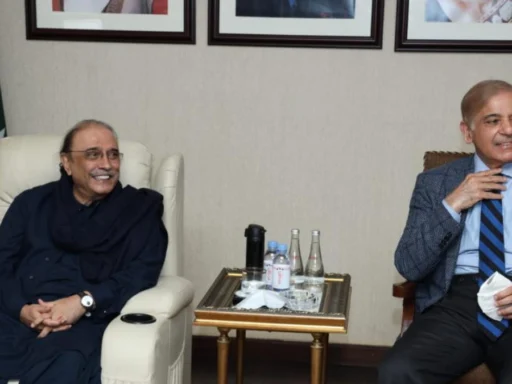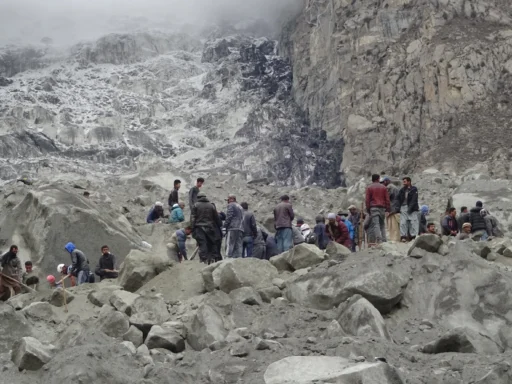Introduction
Government and PTI Open Dialogue to Ease Tensions: In a significant development within Pakistan’s political landscape, the government and Pakistan Tehreek-e-Insaf (PTI) have commenced formal negotiations aimed at resolving ongoing political challenges. This initiative marks the first direct engagement between the two entities since the February parliamentary elections, which PTI contends were compromised.
Formation of Negotiation Committees : Government and PTI Open Dialogue to Ease Tensions
Prime Minister Shehbaz Sharif has established an eight-member committee to represent the government in discussions with PTI. This committee, led by Deputy Prime Minister Ishaq Dar, includes representatives from various coalition partners:
- Pakistan Muslim League-Nawaz (PML-N): Rana Sanaullah, Irfan Siddiqui
- Pakistan Peoples Party (PPP): Raja Pervez Ashraf, Naveed Qamar
- Muttahida Qaumi Movement-Pakistan (MQM-P): Dr. Khalid Maqbool
- Istehkam-e-Pakistan Party (IPP): Aleem Khan
- Pakistan Muslim League-Quaid (PML-Q): Chaudhry Salik Hussain
Government and PTI Open Dialogue to Ease Tensions
On the opposition side, PTI’s negotiation team comprises:
- Omar Ayub
- Asad Qaiser
- Salman Akram Raja
- Ali Amin Khan Gandapur
- Sahibzada Hamid Raza
The inaugural meeting between these committees took place at the Parliament House in Islamabad on December 23, 2024, under the facilitation of National Assembly Speaker Ayaz Sadiq.

Key Issues on the Negotiation Table
Government and PTI Open Dialogue to Ease Tensions
PTI has articulated two primary demands:
- Release of Political Prisoners: The party seeks the liberation of its leader, former Prime Minister Imran Khan, along with other detained political activists.
- Judicial Investigation: PTI calls for an inquiry into the incidents of May 9 and the crackdown on its protesters on November 26.
The government had previously expressed reluctance to engage in talks under preconditions or perceived threats. However, the current dialogue indicates a willingness to address these contentious issues through constructive engagement.
Significance of the Dialogue
The initiation of talks between the government and PTI is a pivotal step toward mitigating political tensions that have escalated since the 2024 general elections. The government’s decision to form a negotiation committee, encompassing a broad spectrum of political parties, reflects a commitment to inclusive dialogue and national cohesion.
National Assembly Speaker Ayaz Sadiq emphasized the importance of this initiative, stating, “Progress can only be achieved through talks and dialogue. The doors of the Speaker’s Office are always open to members.” Prime Minister Shehbaz Sharif echoed this sentiment, expressing hope that national interests would be prioritized during the discussions.

Government and PTI Open Dialogue to Ease Tensions
Next Steps
The initial meeting has set a positive tone for future engagements, with both sides expressing optimism about resolving pertinent issues expeditiously. The committees are scheduled to reconvene on January 2, 2025, to further deliberate on the matters at hand.
Frequently Asked Questions (FAQs)
1. Why are the government and PTI holding talks?
The talks aim to resolve the ongoing political challenges in Pakistan, particularly those stemming from disputes over the 2024 general elections and subsequent political unrest. The dialogue seeks to foster national stability and address PTI’s demands, including the release of political prisoners and judicial investigations.
2. Who is leading the government’s negotiation team?
The government’s negotiation team is led by Deputy Prime Minister Ishaq Dar. The team includes representatives from major coalition parties such as PML-N, PPP, MQM-P, IPP, and PML-Q.
3. What are PTI’s primary demands?
PTI’s primary demands include:
- The release of political prisoners, including their leader, Imran Khan.
- A judicial investigation into the incidents of May 9 and the crackdown on PTI protesters on November 26.
4. When did the first meeting between the two sides take place?
The first meeting occurred on December 23, 2024, at the Parliament House in Islamabad, facilitated by National Assembly Speaker Ayaz Sadiq.
5. What is the significance of these negotiations?
The negotiations represent a critical step toward reducing political tensions in Pakistan. They demonstrate a commitment by both the government and PTI to resolve disputes through dialogue, promoting democratic principles and national unity.
6. What is the role of National Assembly Speaker Ayaz Sadiq in these talks?
National Assembly Speaker Ayaz Sadiq is acting as a facilitator for the negotiations. He has emphasized the importance of dialogue and has opened the Speaker’s Office to assist both sides in achieving progress.
7. When is the next meeting scheduled?
The next meeting between the negotiation committees is scheduled for January 2, 2025, where further discussions will take place.
8. What are the expected outcomes of these talks?
The expected outcomes include:
- Addressing PTI’s demands in a mutually agreeable manner.
- Promoting political stability in Pakistan.
- Strengthening democratic processes through constructive dialogue.
9. How does this initiative benefit Pakistan?
The initiative benefits Pakistan by reducing political polarization, fostering a spirit of collaboration among political entities, and ensuring that national interests take precedence over partisan conflicts.
10. What is the structure of the negotiation teams?
The negotiation teams consist of members from various political parties:
- The government team includes representatives from PML-N, PPP, MQM-P, IPP, and PML-Q.
- The PTI team includes key party members such as Omar Ayub, Asad Qaiser, and Salman Akram Raja.
For a detailed structure, refer to the diagram in the article.
11. What challenges could these negotiations face?
Potential challenges include:
- Differences in priorities and demands between the two sides.
- Lack of trust stemming from past conflicts.
- Pressure from external political groups or factions opposing the dialogue.
12. How can the public stay updated on these negotiations?
The public can stay informed through official statements from both sides, news media coverage, and updates provided by the National Assembly and relevant political parties.
Source : The Express Tribune




